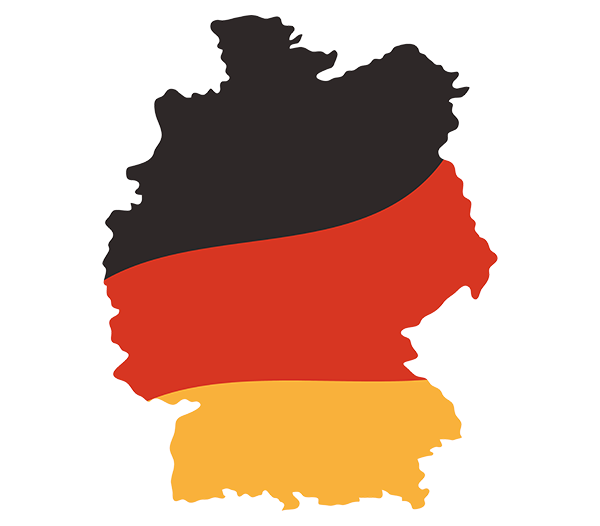Learn German
Where is Germany?
A country in the western region of Central Europe, it is the second-most populous country in Europe after Russia and the most populous member state of the European Union. It is situated between the Baltic and North seas to the north and the Alps to the south. Its 16 constituent states are bordered by Denmark to the north, Poland and the Czech Republic to the east, Austria and Switzerland to the south, and France, Luxembourg, Belgium, and the Netherlands to the west.
This nation plays a crucial role in European politics, economy, and culture. It has a rich history that dates back centuries, influencing global affairs through its contributions to science, philosophy, literature, and industry. Its central location in Europe has made it a hub for trade, innovation, and diplomacy. The country is known for its strong economy, highly developed infrastructure, and renowned educational institutions. It is home to several major cities, including its capital, which serves as a cultural and political center.
Additionally, it is a leader in various industries, from automotive and engineering to technology and renewable energy, making it a significant force in global markets.

Origin of German Language
The German language, also known as Standard High German (Deutsch), is a West Germanic language mainly spoken in Western Europe and Central Europe. It is an Indo-European language that belongs to the West Germanic group of the Germanic languages. The most widely spoken Germanic language is English. Because of this, the German language follows the 26 letters of the English alphabet, only adding a few extra phonetic letters like Umlauts on vowels ä, ö, ü, and the letter ß.
German is the most widely spoken and official or co-official language in Germany, Austria, Switzerland, Liechtenstein, and the Italian province of South Tyrol. It is also an official language of Luxembourg and Belgium, as well as a recognized national language in Namibia. Outside Germany, it is spoken by German communities in France, the Czech Republic, Poland, the Slovakia region, and Hungary.
Overview of Language Levels
Language A1 (Beginner Level)
Duration: 2 months
Can understand and use familiar, everyday expressions and very simple sentences, which relate to the satisfying of concrete needs. Can introduce him/herself and others as well as ask others about themselves – e.g. where they live, who they know and what they own – and can respond to questions of this nature. Can communicate in a simple manner if the person they are speaking to speaks slowly and clearly and is willing to help.
Language A2 (Beginner Level)
Duration: 2 months
Can understand sentences and commonly used expressions associated with topics directly related to his/her direct circumstances (e.g. personal information or information about his/her family, shopping, work, immediate surroundings). Can make him/herself understood in simple, routine situations dealing with a simple and direct exchange of information on familiar and common topics. Can describe his/her background and education, immediate surroundings and other things associated with immediate needs in a simple way
Language B1 (Intermediate Level)
Duration: 3.5 months
Can understand the main points when clear, standard language is used and the focus is on familiar topics associated with work, school, leisure time, etc. Can deal with most situations typically encountered when travelling in the language region. Can express him/herself simply and coherently regarding familiar topics and areas of personal interest. Can report on experiences and events, describe dreams, hopes and goals as well as make short statements to justify or explain his/her own views and plans.
Language B2 (Intermediate Level)
Duration: 4 months
Can understand the main contents of complex texts on concrete and abstract topics; also understands specialized discussions in his/her own primary area of specialization. Can communicate so spontaneously and fluently that a normal conversation with native speakers is easily possible without a great deal of effort on either side. Can express him/herself on a wide range of topics in a clear and detailed manner, explain his/her position on a current issue and indicate the benefits and drawbacks of various options.
Language C1 (Advance Level)
Duration: 4 months
Can understand a wide range of challenging, longer texts and also grasp implicit meanings. Can express him/herself spontaneously and fluently without having to search for words frequently and noticeably. Can use the language effectively and flexibly in his/her social and professional life or in training and studies. Can make clear, structured and detailed statements on complex topics and apply various means of text association appropriately in the process.